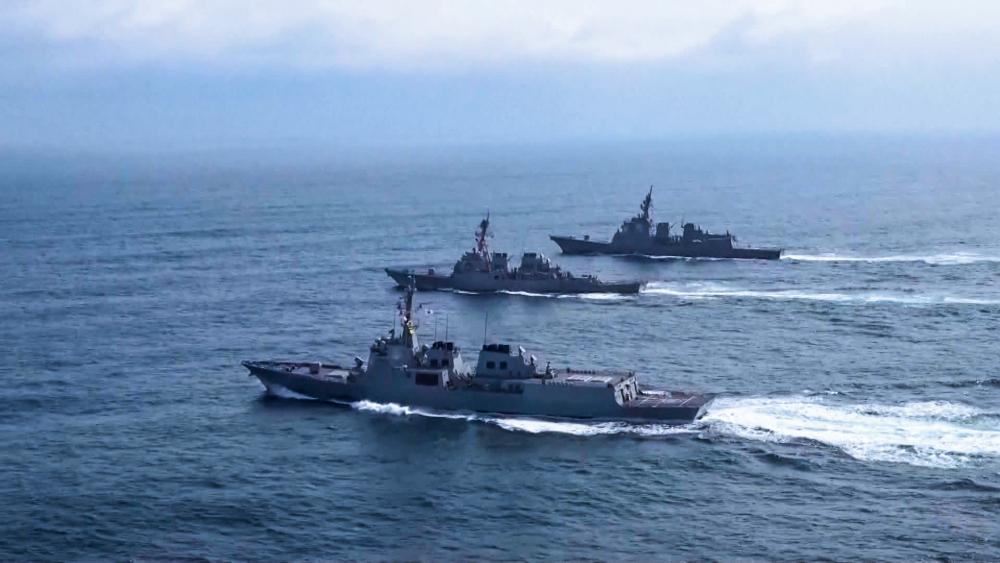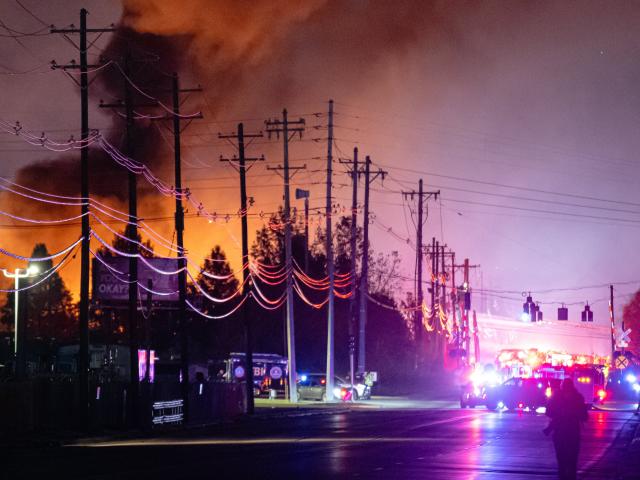Joint US, Philippines Military Drills Signal Warming Partnership Against Chinese Aggression
MANILA, Philippines - In the Indo-Pacific region, the U.S. is increasing its cooperation with the Philippines in an effort to counter China's growing aggressiveness. This increased cooperation includes joint military drills and the potential reopening of a major U.S. naval base in the Philippines.
It's been 32 years since the U.S. Navy left the Philippines, but as the threat of China increases, the largest joint military drills ever held between the two nations brought more than 17,000 Philippine and U.S. soldiers together. This time, the training included the first live-fire drills at sea.
"The highlight of the exercise will be the combined joint littoral live-fire exercise, which aims to rehearse joint and combined tactics techniques and procedures to execute the maritime strike," said Major General Marvin Licudine, Philippines exercise director.
 The drills come at a time when China aggressively monitors nearly all of its borders, especially in the South China Sea, where the Coast Guard recently intercepted a Philippine patrol in its own country's waters.
The drills come at a time when China aggressively monitors nearly all of its borders, especially in the South China Sea, where the Coast Guard recently intercepted a Philippine patrol in its own country's waters.
"We are proceeding according to our planned route. You are reminded that China is a party of the United Nations Convention of the Law of the Sea"
Despite criticism from China, the long-scheduled drills also mark a warming in U.S.-Philippines relations under new President Ferdinand Marcos, Jr. Public opinion in the Philippines has remained strong in favor of strengthening the alliance.
"And that element of continuity is the strong preference for strong ties with the United States as far as the Philippine public is concerned and as far as the Philippine defense establishment and strategic elite is constrained, that has not gone away," author and policy advisor on the Asia-Pacific region Richard Heydarian said.
Right before it shut down in 1992, the U.S. naval base at Subic Bay in the Philippines was one of the largest military bases in the entire world. It was bigger than some countries and it shut down 30 years ago. But now, it may be coming back. And that's because of a newly extended defense cooperation agreement that the U.S. is signing with the Philippines to try to help counter the threat from China.
"We need to build the alliance with the United States. More than 70% of Filipinos in the survey said we need to build the alliance with the United States," Heydarian said.
As U.S. military presence and cooperation increase in the Philippines, this partnership also extends to the chaplain corps.
"We are working on what we call strategic religious engagement, and that is that we are building relationships with allies and partners through relationships with their chaplain corps," said Chaplain Jon Trainer. Unlike the U.S., where often we have this very distinct line of separation between church and state in the public square in many of the countries in which we build relationships, there is not that line. Their politics, their lives, their worldview is informed by their belief system."
This exchange of knowledge and understanding is proving to be invaluable for both sides.
"They're very hungry and very thirsty to learn from us, just like we're hungry and thirsty to learn from them, to make sure we understand clearly the country and what they're facing and how they operate and just seeking to learn from one another," Trainer said.
These deepening ties are important for both parties, as they seek to contain China's aggression, less than 250 miles from Taiwan.
Did you know?
God is everywhere—even in the news. That’s why we view every news story through the lens of faith. We are committed to delivering quality independent Christian journalism you can trust. But it takes a lot of hard work, time, and money to do what we do. Help us continue to be a voice for truth in the media by supporting CBN News for as little as $1.












 Support CBN News
Support CBN News







